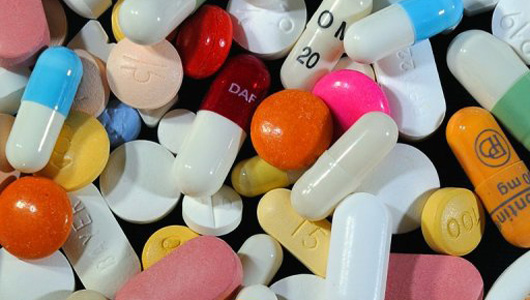The Export Council of Medical Industries (ECMI) expects exports of its member companies to African countries will increase in 2016 and African markets will be an alternative for Arab markets that have been suffering from political and security unrest for several years.
Companies of medical supplies, pharmaceuticals, and cosmetics have high hopes on the agreement signed between the African blocs that include member countries in COMESA, SADC, and EAC to achieve their export goals over the upcoming years.
The medical supply industry lost a large portion of sales after the decline of exports to Arab countries, especially Iraq, Yemen, Libya, and Syria where they had acquired a large percentage of medications and cosmetics sales in the past few years.
Chairman of ECMI Maged George said the council is preparing a new study for medical exports from 2016 to 2030 in cooperation with an advisory bureau to increase exports to African markets, the expected racehorse for the upcoming phase. ECMI aims to increase its export sales to EGP 7.2bn in 2016 compared to EGP 6bn in 2015.
ECMI’s plan includes choosing the 12 best countries where medical exports can be expanded during the term of the study, which is planned to continue until 2030. The expansion will take place in countries that most import medical supplies, pharmaceuticals, and cosmetics.
The plan, in which the Industrial Modernisation Centre (IMC) will take part, includes establishing 12 logistical centres within three years with an investment cost of EGP 60m. Agreements were concluded for the establishment of three centres during the first year of the plan’s term in Kenya, Mozambique, and one country in western Africa (Ghana or Nigeria) with an investment cost EGP 15m.
According to George, the plan will allow Egyptian pharmaceutical companies to acquire a rate ranging from 12% to 15% of total Egyptian exports to Africa.
The Pharmaceutical Industry Chamber in the Federation of Industries is considering forming a coalition that will include Egyptian companies with the aim of establishing a pharmaceutical plant in Gabon, a west-central African country.
Chamber Chairman Ahmed El-Ezaby said they met with a delegation from Gabon in January, where the latter offered to provide facilities for the procedures of obtaining land and registering pharmaceuticals. The delegation also offered financial contributions to accelerate the implementation of the project.
The chamber is also preparing a feasibility study to be presented within three weeks during the visit of Gabon’s president to Egypt, which is scheduled to take place soon.
Manager of exports to Africa in the Egyptian International Pharmaceutical Industries Company (EIPICO) Yousry El-Sheikh said the pharmaceutical consumption rate in Africa is among the highest globally, especially since local production does not meet the market’s needs since these countries mainly rely on importing their needs from East Asia and Turkey. Egypt can benefit from the agreement of the African blocs to increase medical exports to Africa.
ECMI’s plan includes establishing logistical centres in Africa to overcome the main obstacles for companies transferring their goods to Africa, and to reduce shipping costs. EIPICO targets entering South African markets such as Zambia, Angola, Cameroon, Ivory Coast, Niger, and Indonesia during the upcoming period.
The health care and hospital sector is seeking to benefit from the Egyptian-African convergence to attract African citizens to receive treatment in Egyptian hospitals as part of the plan to attract medical tourism.
Member of the Healthcare Chamber in the federation of industries Ghada El-Ganzouri said the chamber aims to attract African citizens especially from Nigeria and Ethiopia since they suffer poor medical services.
“Sudanese citizens resort to medical tourism in Egypt and the chamber addressed the Industries Federation to prepare a programme that aims to increase the number of Africans who come to Egypt for treatment,” El-Ganzouri said.
Head of the therapeutic medicine sector at the Ministry of Health and Population Hesham Atta said the technical support fund for African countries will finance 12 medical convoys of the Nile Basin countries in South Sudan, Chad, Ethiopia, Equatorial Guinea, and South Africa with EGP 120m.


